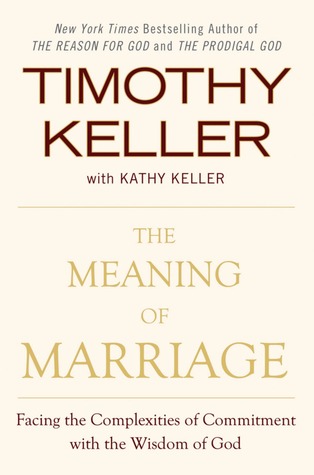More on this book
Community
Kindle Notes & Highlights
Started reading
January 9, 2025
You may have noticed that the books you really love are bound together by a secret thread. You know very well what is the common quality that makes you love them, though you cannot put it into words:. . . . Are not all lifelong friendships born at the moment when at last you meet another human being who has some inkling . . . of that something which you were born desiring . . . ?3
In the Bible there are three human institutions that stand apart from all others—the family, the church, and the state.
God “established marriage for the welfare and happiness of humankind.”
any kind of background experience of marriage may make you ill equipped for it yourself.
The work of the Spirit makes Christ’s saving work real to our hearts, giving us supernatural help against the main enemy of marriage: sinful self-centeredness.
Today more than half of all people live together before getting married.
the greatest percentage of divorces happen to those who marry before the age of eighteen, who have dropped out of high school, and who have had a baby together before marrying. “So if you are a reasonably well-educated person with a decent income, come from an intact family and are religious, and marry after twenty-five without having a baby first, your chances of divorce are low indeed.”11
married people make each other practice saving, investment, and delayed gratification. Nothing can mature character like marriage.
Most striking of all, longitudinal studies demonstrate that two-thirds of those unhappy marriages out there will become happy within five years if people stay married and do not get divorced.
Legal scholar John Witte, Jr., says that the earlier “ideal of marriage as a permanent contractual union designed for the sake of mutual love, procreation, and protection is slowly giving way to a new reality of marriage as a ‘terminal sexual contract’ designed for the gratification of the individual parties.”23
The first two were the Catholic and the Protestant perspectives. Though different in many particulars, they both taught that the purpose of marriage was to create a framework for lifelong devotion and love between a husband and a wife. It was a solemn bond, designed to help each party subordinate individual impulses and interests in favor of the relationship, to be a sacrament of God’s love (the Catholic emphasis) and serve the common good (the Protestant emphasis).
marriage was redefined as finding emotional and sexual fulfillment and self-actualization.
In short, the Enlightenment privatized marriage, taking it out of the public sphere, and redefined its purpose as individual gratification, not any “broader good” such as reflecting God’s nature, producing character, or raising children.
Marriage used to be about us, but now it is about me.


